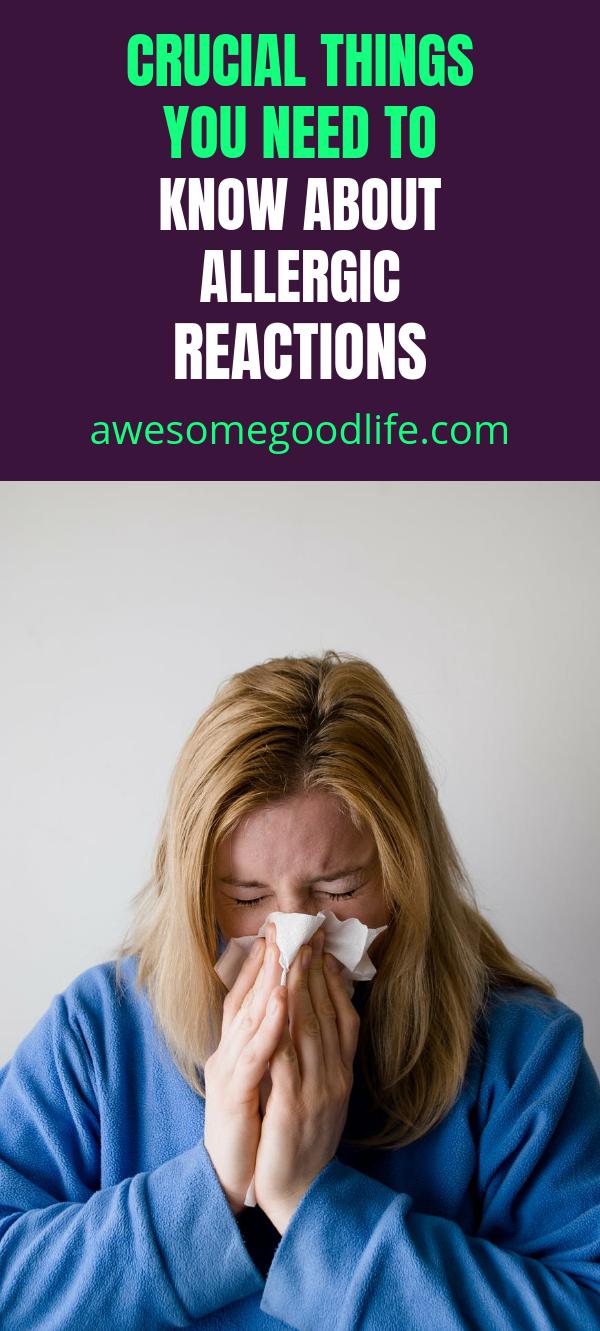Allergy is defined as an adverse reaction to a particular substance, substance, or germs in the body. These substances are often allergens. Basically, they cause a reaction of the skin, mucous membranes, and respiratory system when exposed to them. The most common allergen is dust. Many allergens are food-based, such as milk, pollen, dander, molds, food products, animal products, air pollutants, smoke, air particles, pet dander, etc.
Allergies are often caused by exposure to animal dander, food products, household items, and environmental factors. Allergies are also known as “asthma”.

Allergic reactions can be life-threatening. These reactions can result in allergic rhinitis (common name: “runny nose”), itchy skin, and severe coughing. They can also cause swelling of the lymph glands, and if a person with asthma has them, they can lead to reduced lung function. They can also trigger asthma attacks. Severe bronchial disease can result from increased respiratory stress caused by allergies.
The onset of allergies in some people allergic reactions can be delayed. In others, it can be severe. Because of this, allergy management is important. Symptoms often include itching, inflammation, or swelling of the skin, mucous membranes, eyes, and nose, hives, rashes, sneezing, and difficulty breathing.
Sensitive individuals with allergies to particular foods, chemicals, irritants, animals, or household products will have a harder time dealing with the symptoms. Using certain medications at first can help to make the symptoms easier to deal with. Medications that can be used to help with allergies include antihistamines, decongestants, antihistamine drugs, corticosteroids, nasal sprays, inhalers, epinephrine injectors, and other medications that help with symptoms. A combination of all of these is best.
Allergic reactions are very unpredictable and this can cause problems. Allergies sometimes come on suddenly and have no idea why they are getting the reaction. If this happens, you should see your doctor right away.
Allergic reactions are usually caused by the immune system. If you have a reaction to one thing and your immune system responds to another, there could be a problem. There is some debate over whether allergies are caused by allergies or the response of the immune system to allergies.
Allergies can be preventable. Avoiding things that cause allergies is a good way to start. Common allergens are dust, food, air pollutants, household products, molds, pollen, and smoke. Food allergies cause inflammation and redness of the skin, as well as diarrhea, vomiting, nausea, fatigue, nausea, stomach aches, and stomach pains. Air pollution causes irritation of the eyes, nose, throat, and lungs, and includes pollens, dust, smoke, fumes, smoke, and chemicals.

Asthma is an inflammatory disease of the airways, which helps prevent them from becoming inflamed. Symptoms include coughing, wheezing, chest pain, and difficulty breathing. Allergies are one of the major causes of asthma, so preventing them from avoidance is a good way to prevent asthma.
Living with allergic reactions to common triggers like pollen, pets, and food is a part of life for most people. But not having them is like living with a wall – a wall that is really hard to get over.





